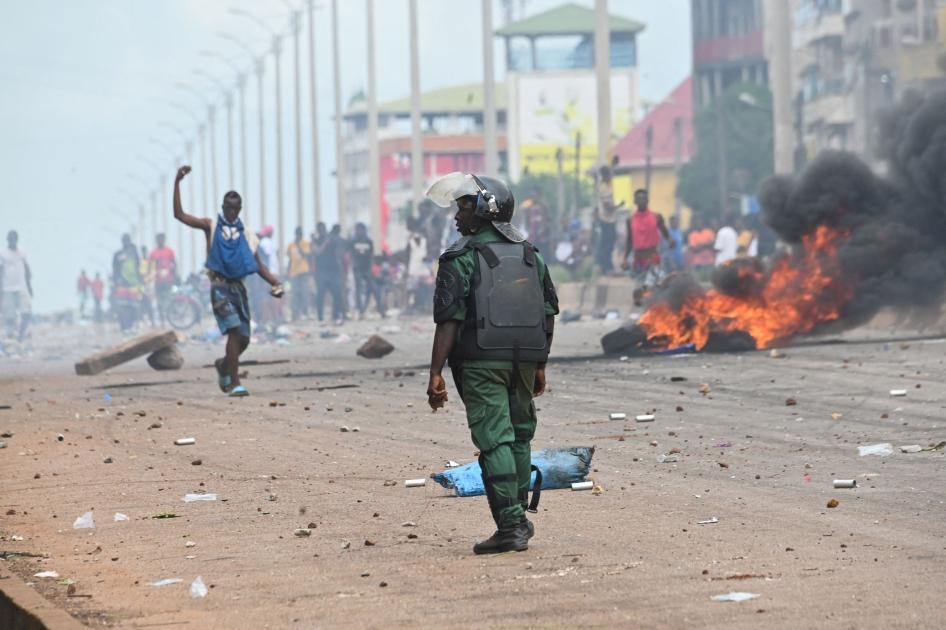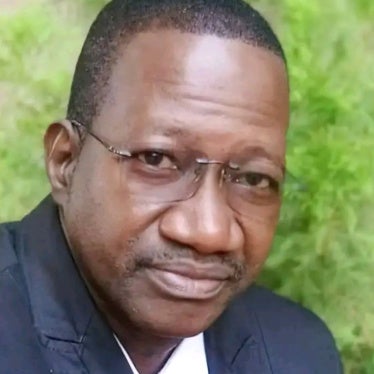(Nairobi) – Guinea dissolved the National Front for the Defense of the Constitution (Front national pour la défense de la Constitution, FNDC), a prominent coalition of Guinean civil society groups and opposition parties, on politically motivated grounds on August 8, 2022, Human Rights Watch said today.
The move by the country’s territorial administration and decentralization minister seriously damages the country’s return to genuine democratic rule. The coalition was given no opportunity to effectively challenge the decision, which was based on vague and sweeping allegations, before an independent judicial body with the authority to quash the order.
“The Guinean transitional government already tightly controls political space,” said Ilaria Allegrozzi, senior Africa researcher at Human Rights Watch. “This move against the FNDC will only further undermine democracy by discouraging any meaningful opposition.”
The order accuses the coalition of organizing public armed demonstrations, using violence, inciting hate, and acting like “private militias.” This decision came hours after the coalition had announced new demonstrations across Guinea and abroad calling for a credible dialogue between transitional military authorities and opposition parties and civil society.
On September 5, 2021, Guinean army officers of the self-proclaimed National Committee for Reconciliation and Development (Comité national du rassemblement et du développement, CNRD) overthrew the government of Alpha Condé. In May, Colonel Mamady Doumbouya, who has been heading the military junta since September 2021, pledged to hand over power to civilians within three years. But national actors, including the FNDC coalition, and regional bodies – including the Economic Community of West African States (ECOWAS) – rejected this timeline as too long.
The coalition was founded in April 2019 to protest Condé’s plan to revise the constitution and run for a third term. The group has faced an onslaught of intimidation and abuse by both Condé’s and Doumbouya’s governments. On July 30 and 31, security forces arrested three prominent coalition leaders in Conakry, Guinea’s capital, and charged them with illegal protest, destruction of public and private property, and assault and battery. In May, the military junta banned any public demonstration that could be seen as threatening public order, drawing criticism from the United Nations Office of the High Commissioner for Human Rights.
The government's decision to dissolve the coalition violates freedom of expression, association, and peaceful assembly, and democratic participation, Human Rights Watch said. These rights are guaranteed under international human rights law including the International Covenant on Civil and Political Rights, which Guinea ratified in 1978, and the African Charter on Human and Peoples’ Rights.
In an August 10 statement, the coalition said the government’s decision is “illegal, unfounded and arbitrary” and called for nationwide protests on August 14.
Alseny Sall, a prominent human rights activist in Conakry, told Human Rights Watch, “This is a major step backwards in Guinea’s efforts to restore democratic rule after the military takeover and yet another way to silence dissent.”
Guinea’s military authorities should immediately revoke their decision and allow the process toward free and fair elections to proceed with full respect for fundamental rights and liberties, Human Rights Watch said. Guinea’s international partners should denounce this setback and call for a return to political pluralism and democratic rule.
“This attack on anyone who opposes military rule does not bode well for the transition and upcoming elections,” Allegrozzi said. “The Guinean government should undo the dissolution of the FNDC and end the interference with opposition parties and civil society.”








